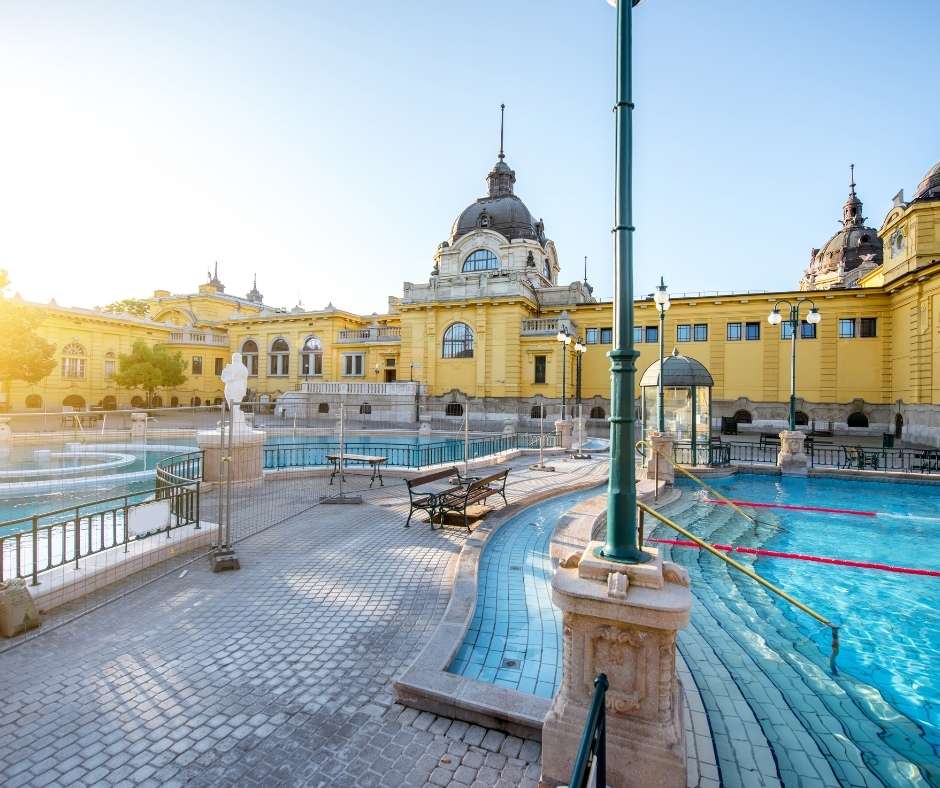Change language:
Eighteenfold gas price rise: will Budapest’s baths close?

Budapest’s deputy mayor, Anett Bősz, said that they saw an eighteenfold price rise in the case of gas and a sevenfold increase considering electricity compared to the 2021 sums in the most recent public procurements the capital’s leadership conducted. In 2022, they plan to spend HUF 1.4 billion (EUR 3.5 million) on energy. But that will rise to HUF 4 billion (EUR 9.9 million) in 2023. However, they would not like to close any baths in Budapest to save money and would do everything to keep their workforce.
According to Hirklikk, Budapest baths and spas are out of the Hungarian government’s utility price cap scheme from 1 September. That means they have to pay the market price for their electricity and gas consumption, which is a brutal increase. Therefore, the Hungarian media outlet argues that bath culture, one of Hungary’s most attractive tourist attractions, might be in danger. The rising prices cause considerable problems in Budapest and country spas alike.
To see clear, the opposition-close media outlet asked Anett Bősz, one of the deputy mayors of Budapest, responsible for the sector in the capital. Bősz was elected after the 2022 general elections after she could not win her constituency as a united opposition candidate. Before, she worked as an MP of the Democratic Coalition.
Zoltán Kántás, the president of the Hungarian Bath Association, told Infórádió before that most Hungarian baths and spas were forced to implement drastic service restrictions from September because of the rising prices. Furthermore, the association conducted a survey. The results show that 33-50 percent of the Hungarian baths and spas will remain closed in the first half of 2023.
To make matters worse, the number of guests fell because fewer people came from Ukraine and Russia. G7.hu says that Russian tourists almost completely disappeared from Hungary after the outbreak of the war and the first Western sanctions. In January, there were 54 thousand nights Russian guest spent in Hungary. Meanwhile, that number fell to 5-6 thousand by this May. In spring 2019, before the outbreak of the coronavirus pandemic, the number of guest nights Russians spent in Hungary reached almost 80 thousand.
The catastrophic results are palpable not only in Budapest, but also in Hévíz and other popular Hungarian baths and spas. Based on the estimate of the Budapest Spas cPlc., the revenue loss in the case of the Historic baths of the capital (Gellért, Széchenyi, Rudas, Lukács) reaches HUF 311 million (EUR 773,753).
Bősz said they calculate with an eighteenfold gas price rise and a sevenfold electricity price increase for 2023 compared to the 2021 level. At least, those are the figures their latest public procurements show.
She added that the popular spas of Hévíz, Bük, Sárvár, Debrecen, Hajdúszoboszló, Nyíregyháza, Harkány, Gyula are all in danger. However, everybody works to survive, jut like Budapest does.

Ildikó Szűts, CEO of the Budapest Spas cPlc., said that the first half year was outstandingly successful for Budapest’s baths and spas despite the lack of Russian and Ukrainian guests. Bősz added that the spas and baths of the capital preceded the average tourism numbers of Budapest. That surprised even the leadership of the institutions. They realized 80 percent of their 2019 numbers in the first six months of 2022. The baths and spas of Budapest remained extremely popular among foreign tourists.
The rising utility prices cause serious problems. But they will not be forced to close any baths or spas in Budapest, Bősz highlighted. However, it might happen that they would limit some services or optimise the opening times. Moreover, she said that the Budapest Spas cPlc. would like to keep the workforce. Bősz cleared that the baths and spas managed the crisis well.
Source: hirklikk.hu, g7.hu








“When the yoke is broken,
the burden is Removed.”
Hungarians – somethink’s got to give.
WHO is the yoke ???